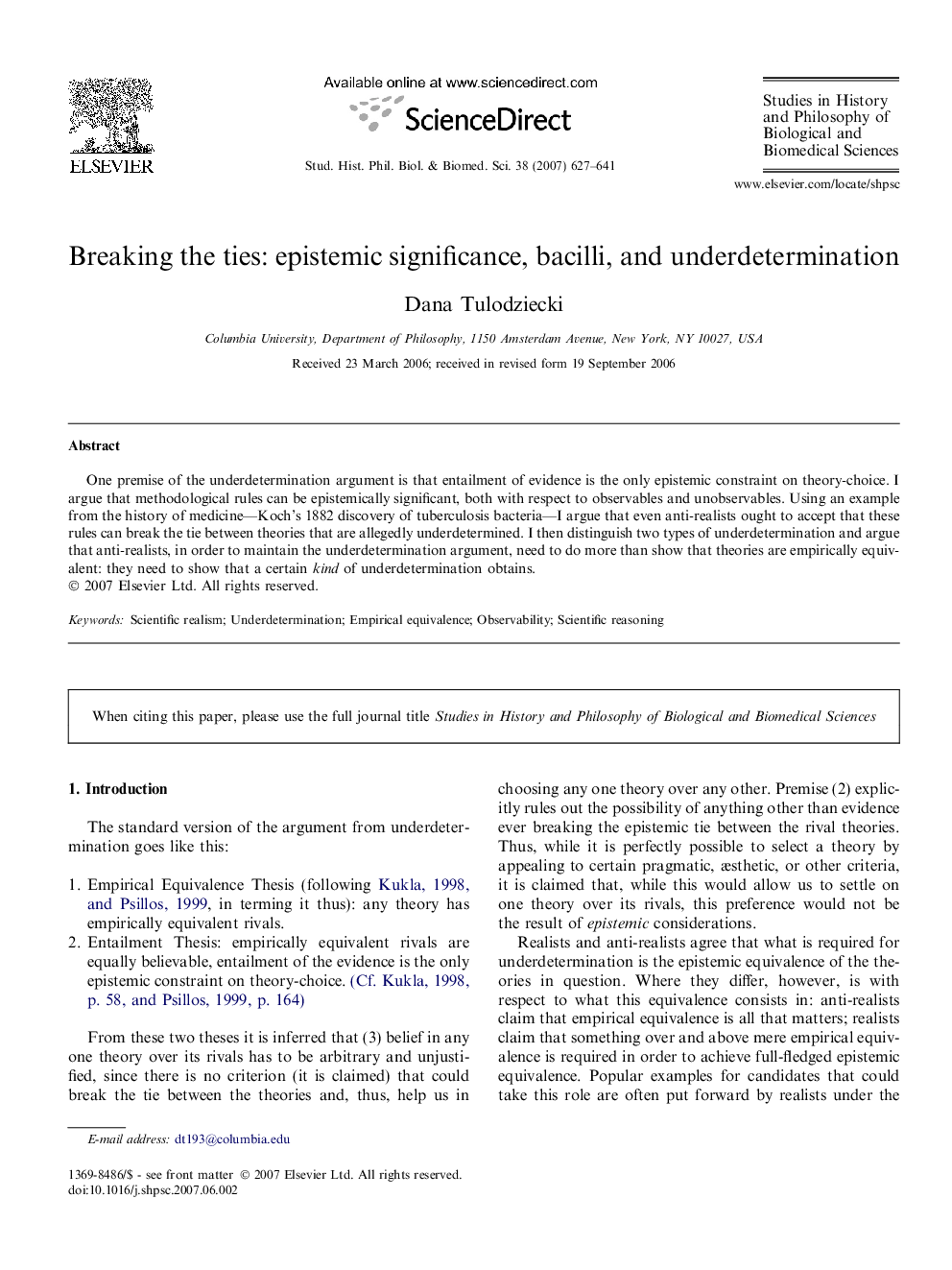| Article ID | Journal | Published Year | Pages | File Type |
|---|---|---|---|---|
| 1162226 | Studies in History and Philosophy of Science Part C: Studies in History and Philosophy of Biological and Biomedical Sciences | 2007 | 15 Pages |
Abstract
One premise of the underdetermination argument is that entailment of evidence is the only epistemic constraint on theory-choice. I argue that methodological rules can be epistemically significant, both with respect to observables and unobservables. Using an example from the history of medicine-Koch's 1882 discovery of tuberculosis bacteria-I argue that even anti-realists ought to accept that these rules can break the tie between theories that are allegedly underdetermined. I then distinguish two types of underdetermination and argue that anti-realists, in order to maintain the underdetermination argument, need to do more than show that theories are empirically equivalent: they need to show that a certain kind of underdetermination obtains.
Related Topics
Life Sciences
Agricultural and Biological Sciences
Agricultural and Biological Sciences (General)
Authors
Dana Tulodziecki,
